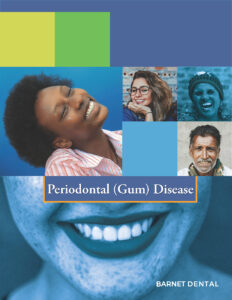What is it?
Tooth sensitivity, also known as dentin hypersensitivity, is a common dental problem characterized by discomfort or pain in response to certain stimuli, such as hot or cold temperatures, sweet or acidic foods, or brushing and flossing. Tooth sensitivity occurs when the underlying dentin, which is the layer beneath the tooth enamel, becomes exposed or irritated, allowing external stimuli to reach the nerves inside the tooth. This can lead to temporary or persistent pain or discomfort, particularly when consuming hot, cold, sweet, or acidic substances, or when brushing or flossing.
Here are some key points about tooth sensitivity:
- Causes:
- Gum recession: Receding gums expose the roots of the teeth, which are not protected by enamel and contain thousands of tiny tubules that lead to the tooth’s nerve center (pulp), making them more susceptible to sensitivity.
- Enamel erosion: Acidic foods and beverages, frequent consumption of sugary or acidic foods, gastric reflux, or aggressive brushing can wear away the protective enamel layer of the teeth, exposing the underlying dentin.
- Tooth decay: Cavities or dental caries can lead to the breakdown of enamel and dentin, exposing the sensitive nerve endings inside the tooth.
- Tooth grinding (bruxism): Chronic teeth grinding or clenching can wear down the enamel and dentin, leading to sensitivity.
- Dental procedures: Certain dental treatments such as tooth whitening, dental cleanings, or restorative procedures may cause temporary sensitivity.
- Cracked or fractured teeth: Cracks or fractures in the teeth can expose the dentin and lead to sensitivity.
- Symptoms:
- Sharp, shooting pain or discomfort in response to hot, cold, sweet, or acidic stimuli.
- Pain or discomfort when brushing or flossing, particularly around the gumline.
- Sensitivity to cold air or pressure, such as biting down on hard foods.
- Lingering pain or discomfort after the stimulus is removed.
- Avoidance of certain foods or beverages due to sensitivity.
- Diagnosis:
- Diagnosis of tooth sensitivity typically involves a thorough dental examination and evaluation of symptoms by a dentist.
- Your dentist may inquire about your dental history, oral hygiene practices, dietary habits, and any factors that may contribute to sensitivity.
- Dental X-rays or other diagnostic tests may be performed to assess the condition of the teeth and identify underlying causes of sensitivity, such as tooth decay or gum recession.
- Treatment:
- Treatment of tooth sensitivity aims to alleviate symptoms, protect the teeth from further damage, and address underlying causes. Treatment options may include:
- Desensitizing toothpaste: Using toothpaste formulated for sensitive teeth containing ingredients such as potassium nitrate or fluoride can help block the transmission of pain signals from the tooth surface to the nerve.
- Fluoride treatments: Professional fluoride applications or at-home fluoride rinses or gels can strengthen enamel and reduce sensitivity.
- Dental bonding or sealants: Applying bonding agents or dental sealants to the exposed tooth surfaces can cover and protect sensitive areas.
- Gum grafting: In cases of severe gum recession, a gum grafting procedure may be recommended to cover exposed roots and reduce sensitivity.
- Root canal therapy: If tooth sensitivity is severe and persistent, root canal therapy may be necessary to remove damaged or infected tissue from inside the tooth and alleviate symptoms.
- Prevention:
- To prevent tooth sensitivity, it’s important to:
- Practice good oral hygiene habits, including regular brushing with a soft-bristled toothbrush and gentle flossing to avoid gum recession and enamel erosion.
- Use a fluoride toothpaste and consider using a desensitizing toothpaste for sensitive teeth.
- Limit consumption of acidic or sugary foods and beverages that can contribute to enamel erosion.
- Wear a mouthguard at night if you grind or clench your teeth to prevent wear on the enamel.
- Visit your dentist regularly for professional cleanings and check-ups to detect and treat dental problems early.
In summary, tooth sensitivity is a common dental problem characterized by pain or discomfort in response to certain stimuli. It can result from various factors, including gum recession, enamel erosion, tooth decay, bruxism, or dental procedures. Treatment of tooth sensitivity aims to alleviate symptoms, protect the teeth from further damage, and address underlying causes. Prevention measures such as good oral hygiene, fluoride use, dietary modifications, and regular dental check-ups can help reduce the risk of tooth sensitivity and maintain oral health. If you experience persistent or severe tooth sensitivity, it’s important to consult your dentist for evaluation and appropriate treatment.

